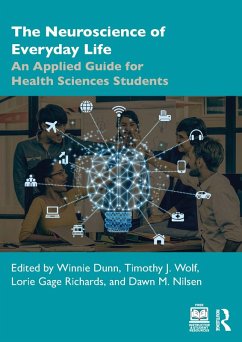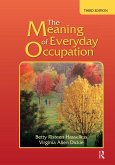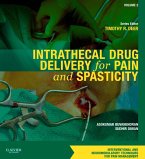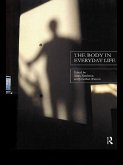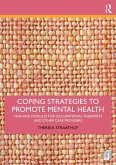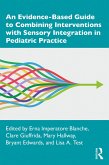The Neuroscience of Everyday Life (eBook, ePUB)
An Applied Guide for Health Sciences Students
Redaktion: Dunn, Winnie; Nilsen, Dawn M.; Richards, Lorie Gage; Wolf, Timothy J.
52,95 €
52,95 €
inkl. MwSt.
Erscheint vor. 22.01.25

26 °P sammeln
52,95 €
Als Download kaufen

52,95 €
inkl. MwSt.
Erscheint vor. 22.01.25

26 °P sammeln
Jetzt verschenken
Alle Infos zum eBook verschenken
52,95 €
inkl. MwSt.
Erscheint vor. 22.01.25
Alle Infos zum eBook verschenken

26 °P sammeln
Unser Service für Vorbesteller - Ihr Vorteil ohne Risiko:
Sollten wir den Preis dieses Artikels vor dem Erscheinungsdatum senken, werden wir Ihnen den Artikel bei der Auslieferung automatisch zum günstigeren Preis berechnen.
Sollten wir den Preis dieses Artikels vor dem Erscheinungsdatum senken, werden wir Ihnen den Artikel bei der Auslieferung automatisch zum günstigeren Preis berechnen.
The Neuroscience of Everyday Life (eBook, ePUB)
An Applied Guide for Health Sciences Students
Redaktion: Dunn, Winnie; Nilsen, Dawn M.; Richards, Lorie Gage; Wolf, Timothy J.
- Format: ePub
- Merkliste
- Auf die Merkliste
- Bewerten Bewerten
- Teilen
- Produkt teilen
- Produkterinnerung
- Produkterinnerung

Bitte loggen Sie sich zunächst in Ihr Kundenkonto ein oder registrieren Sie sich bei
bücher.de, um das eBook-Abo tolino select nutzen zu können.
Hier können Sie sich einloggen
Hier können Sie sich einloggen
Sie sind bereits eingeloggt. Klicken Sie auf 2. tolino select Abo, um fortzufahren.

Bitte loggen Sie sich zunächst in Ihr Kundenkonto ein oder registrieren Sie sich bei bücher.de, um das eBook-Abo tolino select nutzen zu können.
By weaving vignettes and case studies throughout, this fascinating and original textbook provides an accessible primer not only on the key principles of neuroscience but, crucially, how they may manifest in the everyday lives of people with neurological conditions.
- Geräte: eReader
- mit Kopierschutz
- eBook Hilfe
- Größe: 7.75MB
Andere Kunden interessierten sich auch für
![The Neuroscience of Everyday Life (eBook, PDF) The Neuroscience of Everyday Life (eBook, PDF)]() The Neuroscience of Everyday Life (eBook, PDF)52,95 €
The Neuroscience of Everyday Life (eBook, PDF)52,95 €![The Meaning of Everyday Occupation (eBook, ePUB) The Meaning of Everyday Occupation (eBook, ePUB)]() Betty Risteen HasselkusThe Meaning of Everyday Occupation (eBook, ePUB)59,95 €
Betty Risteen HasselkusThe Meaning of Everyday Occupation (eBook, ePUB)59,95 €![Bringing Evidence Into Everyday Practice (eBook, ePUB) Bringing Evidence Into Everyday Practice (eBook, ePUB)]() Winnie DunnBringing Evidence Into Everyday Practice (eBook, ePUB)45,95 €
Winnie DunnBringing Evidence Into Everyday Practice (eBook, ePUB)45,95 €![Intrathecal Drug Delivery for Pain and Spasticity E-Book (eBook, ePUB) Intrathecal Drug Delivery for Pain and Spasticity E-Book (eBook, ePUB)]() Asokumar BuvanendranIntrathecal Drug Delivery for Pain and Spasticity E-Book (eBook, ePUB)81,95 €
Asokumar BuvanendranIntrathecal Drug Delivery for Pain and Spasticity E-Book (eBook, ePUB)81,95 €![The Body in Everyday Life (eBook, ePUB) The Body in Everyday Life (eBook, ePUB)]() The Body in Everyday Life (eBook, ePUB)48,95 €
The Body in Everyday Life (eBook, ePUB)48,95 €![Coping Strategies to Promote Mental Health (eBook, ePUB) Coping Strategies to Promote Mental Health (eBook, ePUB)]() Theresa StraathofCoping Strategies to Promote Mental Health (eBook, ePUB)30,95 €
Theresa StraathofCoping Strategies to Promote Mental Health (eBook, ePUB)30,95 €![An Evidence-Based Guide to Combining Interventions with Sensory Integration in Pediatric Practice (eBook, ePUB) An Evidence-Based Guide to Combining Interventions with Sensory Integration in Pediatric Practice (eBook, ePUB)]() An Evidence-Based Guide to Combining Interventions with Sensory Integration in Pediatric Practice (eBook, ePUB)36,95 €
An Evidence-Based Guide to Combining Interventions with Sensory Integration in Pediatric Practice (eBook, ePUB)36,95 €-
-
-
By weaving vignettes and case studies throughout, this fascinating and original textbook provides an accessible primer not only on the key principles of neuroscience but, crucially, how they may manifest in the everyday lives of people with neurological conditions.
Dieser Download kann aus rechtlichen Gründen nur mit Rechnungsadresse in A, B, BG, CY, CZ, D, DK, EW, E, FIN, F, GR, HR, H, IRL, I, LT, L, LR, M, NL, PL, P, R, S, SLO, SK ausgeliefert werden.
Produktdetails
- Produktdetails
- Verlag: Taylor & Francis
- Erscheinungstermin: 22. Januar 2025
- Englisch
- ISBN-13: 9781040263136
- Artikelnr.: 72319230
- Verlag: Taylor & Francis
- Erscheinungstermin: 22. Januar 2025
- Englisch
- ISBN-13: 9781040263136
- Artikelnr.: 72319230
- Herstellerkennzeichnung Die Herstellerinformationen sind derzeit nicht verfügbar.
Winnie Dunn, Distinguished Professor, Occupational Therapy, University of Missouri, USA. Timothy J. Wolf, Associate Dean for Research, Chair Occupational Therapy University of Missouri, USA. Lorie Gage Richards, Associate Professor, Chair, Occupational Therapy, University of Utah, USA. Dawn M. Nilsen, Professor and Director, Programs in Occupational Therapy, Columbia University, USA.
Introduction UNIT I Sensorimotor systems 1. Alex wants to put on make
up and has Bell's palsy: neuroscience facilitates our understanding of self
care routines 2. Omar wants to cook meals for his children and has myasthenia gravis: neuroscience facilitates our understanding of self
care routines 3. Danea wants to complete personal hygiene to go out with friends and has a spinal cord injury: neuroscience facilitates our understanding of personal hygiene 4. Thomas wants to stay connected using a computer and has amyotrophic lateral sclerosis: neuroscience facilitates our understanding of computer use 5. Erna wants to clean her home and has cerebral palsy: neuroscience facilitates our understanding of home maintenance 6. Stella wants to garden and has Friedreich's ataxia: neuroscience facilitates our understanding of participation in hobbies 7. Torrance wants to be successful in their new job and is autistic: neuroscience facilitates our understanding of workplace modifications 8. Branden wants to run errands and is blind: neuroscience facilitates our understanding of running errands 9. Chloe wants to be successful entering college and has Ménière's disease: neuroscience facilitates our understanding of attending college 10. Lydia wants to volunteer and has fibromyalgia: neuroscience facilitates our understanding of volunteering UNIT II Social emotional systems 11. Kareem wants to be in a club and has autism: neuroscience facilitates our understanding of making friends 12. Ian wants to manage his money and has schizophrenia: neuroscience facilitates our understanding of money management 13. Alyssa wants to go out with friends and has anxiety: neuroscience facilitates our understanding of going out with friends 14. Abraham wants to fish and has depression: neuroscience facilitates our understanding of learning a new activity 15. Sonya wants to care for her children and has bipolar disorder: neuroscience facilitates our understanding of caring for children 16. Preston wants to reconnect with his children and is in recovery from addiction: neuroscience facilitates our understanding of family dynamics UNIT III Cognitive systems 17. Peter wants to build a playhouse for his siblings and has ADHD: neuroscience facilitates our understanding of task completion 18. Marcus wants to interact with friends via social media and has developmental language disorder: neuroscience facilitates our understanding of social media use 19. Paul wants to participate in his routine at home and has Alzheimer's disease: neuroscience facilitates our understanding of place and routines 20. Louise wants to organize her schedule and routines and has breast cancer: neuroscience facilitates our understanding of life organization UNIT IV Integrated systems 21. Xavier wants to complete his personal hygiene by himself and has had a stroke: neuroscience facilitates our understanding of daily routines 22. Natalie wants to drive her car and has a traumatic brain injury: neuroscience facilitates our understanding of driving a car 23. Antoine wants to play with his grandchildren and has Parkinson's disease: neuroscience facilitates our understanding of playing with grandchildren Appendix: table template for analysis of participation features with nervous system functions
up and has Bell's palsy: neuroscience facilitates our understanding of self
care routines 2. Omar wants to cook meals for his children and has myasthenia gravis: neuroscience facilitates our understanding of self
care routines 3. Danea wants to complete personal hygiene to go out with friends and has a spinal cord injury: neuroscience facilitates our understanding of personal hygiene 4. Thomas wants to stay connected using a computer and has amyotrophic lateral sclerosis: neuroscience facilitates our understanding of computer use 5. Erna wants to clean her home and has cerebral palsy: neuroscience facilitates our understanding of home maintenance 6. Stella wants to garden and has Friedreich's ataxia: neuroscience facilitates our understanding of participation in hobbies 7. Torrance wants to be successful in their new job and is autistic: neuroscience facilitates our understanding of workplace modifications 8. Branden wants to run errands and is blind: neuroscience facilitates our understanding of running errands 9. Chloe wants to be successful entering college and has Ménière's disease: neuroscience facilitates our understanding of attending college 10. Lydia wants to volunteer and has fibromyalgia: neuroscience facilitates our understanding of volunteering UNIT II Social emotional systems 11. Kareem wants to be in a club and has autism: neuroscience facilitates our understanding of making friends 12. Ian wants to manage his money and has schizophrenia: neuroscience facilitates our understanding of money management 13. Alyssa wants to go out with friends and has anxiety: neuroscience facilitates our understanding of going out with friends 14. Abraham wants to fish and has depression: neuroscience facilitates our understanding of learning a new activity 15. Sonya wants to care for her children and has bipolar disorder: neuroscience facilitates our understanding of caring for children 16. Preston wants to reconnect with his children and is in recovery from addiction: neuroscience facilitates our understanding of family dynamics UNIT III Cognitive systems 17. Peter wants to build a playhouse for his siblings and has ADHD: neuroscience facilitates our understanding of task completion 18. Marcus wants to interact with friends via social media and has developmental language disorder: neuroscience facilitates our understanding of social media use 19. Paul wants to participate in his routine at home and has Alzheimer's disease: neuroscience facilitates our understanding of place and routines 20. Louise wants to organize her schedule and routines and has breast cancer: neuroscience facilitates our understanding of life organization UNIT IV Integrated systems 21. Xavier wants to complete his personal hygiene by himself and has had a stroke: neuroscience facilitates our understanding of daily routines 22. Natalie wants to drive her car and has a traumatic brain injury: neuroscience facilitates our understanding of driving a car 23. Antoine wants to play with his grandchildren and has Parkinson's disease: neuroscience facilitates our understanding of playing with grandchildren Appendix: table template for analysis of participation features with nervous system functions
Introduction UNIT I Sensorimotor systems 1. Alex wants to put on make
up and has Bell's palsy: neuroscience facilitates our understanding of self
care routines 2. Omar wants to cook meals for his children and has myasthenia gravis: neuroscience facilitates our understanding of self
care routines 3. Danea wants to complete personal hygiene to go out with friends and has a spinal cord injury: neuroscience facilitates our understanding of personal hygiene 4. Thomas wants to stay connected using a computer and has amyotrophic lateral sclerosis: neuroscience facilitates our understanding of computer use 5. Erna wants to clean her home and has cerebral palsy: neuroscience facilitates our understanding of home maintenance 6. Stella wants to garden and has Friedreich's ataxia: neuroscience facilitates our understanding of participation in hobbies 7. Torrance wants to be successful in their new job and is autistic: neuroscience facilitates our understanding of workplace modifications 8. Branden wants to run errands and is blind: neuroscience facilitates our understanding of running errands 9. Chloe wants to be successful entering college and has Ménière's disease: neuroscience facilitates our understanding of attending college 10. Lydia wants to volunteer and has fibromyalgia: neuroscience facilitates our understanding of volunteering UNIT II Social emotional systems 11. Kareem wants to be in a club and has autism: neuroscience facilitates our understanding of making friends 12. Ian wants to manage his money and has schizophrenia: neuroscience facilitates our understanding of money management 13. Alyssa wants to go out with friends and has anxiety: neuroscience facilitates our understanding of going out with friends 14. Abraham wants to fish and has depression: neuroscience facilitates our understanding of learning a new activity 15. Sonya wants to care for her children and has bipolar disorder: neuroscience facilitates our understanding of caring for children 16. Preston wants to reconnect with his children and is in recovery from addiction: neuroscience facilitates our understanding of family dynamics UNIT III Cognitive systems 17. Peter wants to build a playhouse for his siblings and has ADHD: neuroscience facilitates our understanding of task completion 18. Marcus wants to interact with friends via social media and has developmental language disorder: neuroscience facilitates our understanding of social media use 19. Paul wants to participate in his routine at home and has Alzheimer's disease: neuroscience facilitates our understanding of place and routines 20. Louise wants to organize her schedule and routines and has breast cancer: neuroscience facilitates our understanding of life organization UNIT IV Integrated systems 21. Xavier wants to complete his personal hygiene by himself and has had a stroke: neuroscience facilitates our understanding of daily routines 22. Natalie wants to drive her car and has a traumatic brain injury: neuroscience facilitates our understanding of driving a car 23. Antoine wants to play with his grandchildren and has Parkinson's disease: neuroscience facilitates our understanding of playing with grandchildren Appendix: table template for analysis of participation features with nervous system functions
up and has Bell's palsy: neuroscience facilitates our understanding of self
care routines 2. Omar wants to cook meals for his children and has myasthenia gravis: neuroscience facilitates our understanding of self
care routines 3. Danea wants to complete personal hygiene to go out with friends and has a spinal cord injury: neuroscience facilitates our understanding of personal hygiene 4. Thomas wants to stay connected using a computer and has amyotrophic lateral sclerosis: neuroscience facilitates our understanding of computer use 5. Erna wants to clean her home and has cerebral palsy: neuroscience facilitates our understanding of home maintenance 6. Stella wants to garden and has Friedreich's ataxia: neuroscience facilitates our understanding of participation in hobbies 7. Torrance wants to be successful in their new job and is autistic: neuroscience facilitates our understanding of workplace modifications 8. Branden wants to run errands and is blind: neuroscience facilitates our understanding of running errands 9. Chloe wants to be successful entering college and has Ménière's disease: neuroscience facilitates our understanding of attending college 10. Lydia wants to volunteer and has fibromyalgia: neuroscience facilitates our understanding of volunteering UNIT II Social emotional systems 11. Kareem wants to be in a club and has autism: neuroscience facilitates our understanding of making friends 12. Ian wants to manage his money and has schizophrenia: neuroscience facilitates our understanding of money management 13. Alyssa wants to go out with friends and has anxiety: neuroscience facilitates our understanding of going out with friends 14. Abraham wants to fish and has depression: neuroscience facilitates our understanding of learning a new activity 15. Sonya wants to care for her children and has bipolar disorder: neuroscience facilitates our understanding of caring for children 16. Preston wants to reconnect with his children and is in recovery from addiction: neuroscience facilitates our understanding of family dynamics UNIT III Cognitive systems 17. Peter wants to build a playhouse for his siblings and has ADHD: neuroscience facilitates our understanding of task completion 18. Marcus wants to interact with friends via social media and has developmental language disorder: neuroscience facilitates our understanding of social media use 19. Paul wants to participate in his routine at home and has Alzheimer's disease: neuroscience facilitates our understanding of place and routines 20. Louise wants to organize her schedule and routines and has breast cancer: neuroscience facilitates our understanding of life organization UNIT IV Integrated systems 21. Xavier wants to complete his personal hygiene by himself and has had a stroke: neuroscience facilitates our understanding of daily routines 22. Natalie wants to drive her car and has a traumatic brain injury: neuroscience facilitates our understanding of driving a car 23. Antoine wants to play with his grandchildren and has Parkinson's disease: neuroscience facilitates our understanding of playing with grandchildren Appendix: table template for analysis of participation features with nervous system functions
